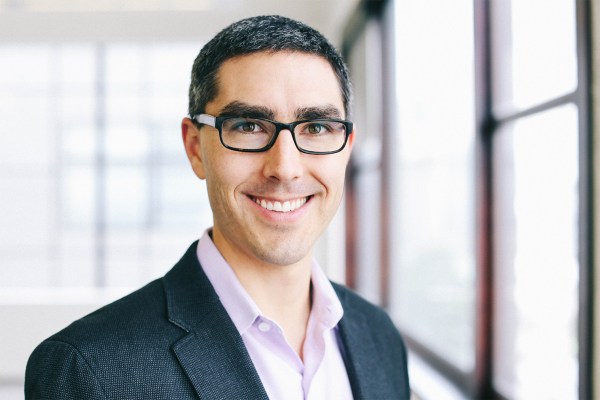Yesterday, Tally, the startup looking to automate consumers financial lives, announced it had raised a $50 million Series C round led by Andreessen Horowitz and with participation from Valley heavy hitters Kleiner Perkins, Shasta Ventures, Cowboy Ventures and Sway Ventures.
On the back of the announcement, TechCrunch’s fintech contributor Gregg Schoenberg sat down with Tally’s founder and CEO Jason Brown to discuss the round, Tally’s growth strategy and the company’s vision for an automated financial future.
Gregg Schoenberg: I never like to congratulate people when they raise a big load of capital, because if anything, the pressure is on even more. But just to level set real quickly, are there any numbers you can share that Andreessen Horowitz and the other investors saw that underscored your traction?
Jason Brown: So I agree with you. Internally, the metaphor I use is that it’s kind of like going on a long road trip where you’re stopping in the gas station to get more fuel so you can make it to your destination. You should really celebrate when you’re delivering value to customers.
Schoenberg: In terms of total credit card debt you’re managing, you were at $250mm towards the end of last year.
Brown: Yes. Now, we’re getting close to $400mm.
Schoenberg: And the savings vehicle – it’s new and totally free?
Brown: Yes, it’s completely free and just to recap, it takes 35-45 seconds to set-up, it automates the process of setting money aside every week and it gives you points. It’s still in beta, but we’re getting close to the end of beta, and have over 30,000 people on the waitlist.
AI is a non-technical term, right? I like to use the word automation because it means things are being done for you.
Schoenberg: With respect to the fundraise you just announced, the big takeaway I got was your aspiration to automate people’s entire financial lives. That’s big talk.
Brown: That is big talk.

Schoenberg: You obviously knew what you were doing when you decided to frame it that way. Where do you go from here? Obviously, credit card payments and the savings vehicle are good, but there are many other financial services out there that you’ll need to tackle.
Brown: Well one of the key portions of the investment thesis for Andreessen Horowitz is actually what’s under the hood. So we actually took three years to build the underlying infrastructure to automate the pay off my cards job. And there are two fundamental layers to the tech.
There’s the “decide what’s best for me,” which addresses the complexity of ingesting data across your entire financial life, and being able to validate that it’s accurate and consistent, and then having algorithms that can make sense of it and figure out what’s best for you. The next layer is actually doing what’s best for you, which involves being able to move money around and lend money.
And to give you a context for Tally Save, it was only three months from the first line of code written to code complete. And it’s because we’ve already built this foundation for doing financial work for folks. What we’re focused on the rest of this year and early next year is automating the next most popular jobs people need done.
Schoenberg: What’s that low-hanging fruit?
Brown: The low hanging fruit is around student loans, improving credit scores and preventing overdraft fees. Moving into 2020 and 2021, we’ll start expanding beyond debt into actually helping people build up assets for bigger things like retirement or investing long term.
Schoenberg: How do you think about entering into all these hotly contested markets? There’s Credit Karma, of course, and all the student loan refinance platforms.
Brown: Gotcha. Well, it’s helpful to articulate my view on the landscape. My view is we’re just entering the third wave of FinTech.
So for context, the first wave was what I call mispriced markets, which saw the emergence of the online lenders, the student loan lenders, and it was really an arbitrage. They exist because the existing banks were busy.
Now, we’re in the heart of what I call “Wave Two” which is mobile tools, where you see all the neo-banks, stock trading platforms and the likes of Credit Karma. And what separates wave two from three is wave two is about nouns.
It’s about these tools, where you are the intelligent entity that has to know how to use these tools to get to your goals. “Wave Three” is actually about intelligent automated work that actually controls these underlying tools, so that the human can sit back and rely on the service to do all the thinking and work for them to get them to their goals.

Schoenberg: Let’s talk about another differentiator. You have tapped the ABS market to fund your assets. There’s isn’t any coverage of that, but I’m wondering, notwithstanding the stated intention of the round, does it help you to shore up the balance sheet a bit more? Could it enable you to be more aggressive in the capital markets?
Brown: Because we’ve done so well on the capital market side, it certainly doesn’t hurt it. It continues to give us the credibility we need and enhance the brand that we have among issuers.
But for us, it’s much more about the R&D and hiring more engineers and product people so that we can accelerate the rate at which we add additional financial jobs.
Schoenberg: Okay, because my conspiracy theory is that when you look at how SoFi leapfrogged over Lending Club and Prosper, I think it was because they had a better engine to fund assets.
Then I look at Tally, which has a fair bit of experience in funding assets in the capital markets, and I think that over the long-term, you could have an edge vs. some of the big robos and savings apps, who are all trying to offer added services. Because you know how to fund assets efficiently.
Brown: Yes, I would completely agree with that assessment. Most of the “Wave Two” folks are making recommendations – they’re relying on you to do the work.
But in order to actually do things for customers, you have to be able to move money around and sign contracts and make things happen. And that expertise doesn’t exist in many of our competitors’ skill sets.
…with financial automation, you actually automate one job at a time and as long as that one job is done well, then you can earn a customer’s trust over time.
Schoenberg: In order to get to the fully automated financial future that is your goal, and to be as efficient as possible, do you ever think to yourself, rather than partner with a bank, we should just become a bank?
Brown: It’s been a key conversation that we’ve had internally. And let’s just say on the lending side, we actually concluded we could do everything we need to do without becoming a bank.
But with Tally Save, we knew that we needed to be able to hold FDIC insured deposits and we were actually able to work with a network of banks where the funds are all FDIC insured and they exist in multiple banks.
Our view is that the biggest existential threat for the big centralized branded banks is that every single one of us has this ultra-smart service that is optimizing every single day on their behalf. If that vision becomes the future, Tally will never actually have to become a bank, because those will be provided essentially at marginal cost in a completely open API system.
Schoenberg: Between what you just said, and the fact that Tally’s unofficial slogan is “automation or bust,” I think it’s apparent that all of this “let’s work together stuff” you now hear in fintech isn’t for you, right?
Brown: Depends on which bank you are. So if you’re one of the top 10 or 20 branded banks, your ability to extract value from customers depends on this really sticky branded relationship for all these overpriced services and fees you charge, right?
My view is that these big banks will be very slow to act, and then they will try to emulate what a company like Tally is doing. But their core competency is doing things vertically within their own stack, not horizontally across the whole financial system, and so they will struggle to meet the skill set necessary to actually automate somebody’s entire financial life and ultimately, they will succumb to having to be much less profitable pipes.

Schoenberg: Let’s talk a little more about artificial intelligence, which is central to your value proposition. When you say artificial intelligence, it can mean so many different things.
Are you talking about artificial generalized intelligence, where the algorithms really are making judgment calls, or are you talking about the machine learning types already used a lot in banking today?
Brown: I’m talking about maybe something in the middle. AI is a non-technical term, right? I like to use the word automation because it means things are being done for you.
So you have machine learning, which is basically pattern matching and so that’s a key component. And then a lot of the actual decision making for a customer is actually mathematically derivable. It’s actually more like an algorithm or a decision tree of what’s best for the customer given all of these constraints.
What makes automating a person’s financial life difficult is first you’ve got to know all their goals, and then once you have those goals, you have to convert those into math where you can say, “Hey, the best thing to do for Gregg is XYZ,” and then you actually have to do the work.
In that way, it’s much less about generalized AI and more about being able to convert goals into an optimal strategy and then executing the strategy.
Schoenberg: Right, but in the past, you’ve likened financial services to a washing machine, where you stick the clothes in the machine and they just come out clean.
But right now, we’re here in this posh SoHo neighborhood. If we were to walk along the street and probe people on how important their financial picture is to their overall identity, I’m thinking we would find that at least half of our sample group would reveal a very strong connection between money and self-worth, right or wrong.
That is to say, people have a lot more emotionally invested in their money than they do in their clothes in the washing machine. How would you respond to that?
Brown: Let’s just use a concrete example of Tally Card, which is automated “pay off my cards,” right? Tally does everything. There’s one job you can elect to do yourself and that’s to pay Tally.
Tally calculates what it recommends what you should pay and you can press one button every month to pay that recommended amount or edit it. You can also set up auto pay with Tally. And we’ve seen the majority of customers like to click a button once a month as opposed to having Tally do absolutely everything.
And so I think giving customers the option to have those key control points is important. And as they gain more and more trust with the service, they can decide if they want to give up.

Schoenberg: But your goal is to ultimately automate the whole thing right? If in a few years time from now, you’re helping your customers pay down their student loans, save money for a down payment on a home, pay a car loan, build a cushion, deal with their credit cards, figure out which rewards they want to ultimately optimize for – you have a lot of different considerations to take into account.
Don’t you think it’s going to be a long time before someone says “Tally, you worry about it all and make these decisions for me.” Because there are a lot of complicating factors.
…two-thirds of people with credit card debt actually have clinical levels of anxiety.
Brown: There are, but view “show me, don’t tell me.” That’s how you earn trust. So with Tally, you effectively hire it to do a job. “Hey, pay off my cards or set money aside for me.” And you see that Tally is doing a good job, you see that it’s getting you towards your objectives, you have it do a couple more jobs and to the extent that you continue to have good outcomes and you see that it’s doing well for you, that’s what’s going to drive the trust.
Look, with something autonomous vehicles, what makes that a difficult problem to solve is you have to get all the way to 99.99% completeness before you can have cars that have no driver and no steering wheel. Whereas with financial automation, you actually automate one job at a time and as long as that one job is done well, then you can earn a customer’s trust over time.
Schoenberg: So boil the frog method.
Brown: Well, we’re not boiling any frogs.
Schoenberg: But you know what I mean, you’re going to go slowly and not try to—
Brown: —Another way of thinking about is to ask the question, “how do you build trust with a human?” The answer is that they demonstrate to you over and over again, that they’re congruent in their activities and that they do the right thing. And I think the service itself has to exhibit those same kinds of human qualities where it can relate to you emotionally, and it earns the trust over time.
Schoenberg: What are the biggest technical challenges associated with making progress towards an automated financial future?
Brown: Right now, a lot of people have a fuzzy sense of what they want out of life. We need to effectively invent an interface that allows you at an emotional level to connect the relationship between what you want today and what you want tomorrow. And it has to be completely emotional.
It can’t have anything to do with numbers or charts. Then you have the issue of how to accelerate the rate at which you can add jobs that you can do. For that, I think growing the team and making sure that everything is cohesive will be important.
Schoenberg: In the past, you have linked financial health to actual health. In fact, because I have been on stage with you before and I know a little bit about your background, I’m confident in saying that linking financial health to a person’s well being is an important driver for you. And yet I’ve seen very little research or scholarship done in that area. Have you thought about commissioning a study build greater understanding around the connection?
Brown: So there actually has been a decent amount of research around the impact of stress itself on aging and body decomposition, but financial stress has not been done yet. And I think I mentioned on stage with you that in another life, I would have been an academic and would have tried to study things like this.
So I would love to be able to commission a study on that. Because people need to better understand the true cost of financial stress.

Schoenberg: Well, I’d love to see it happen because we need more work done in this area.
Brown: I would agree. I would point out that we have studied credit card debt and found that two-thirds of people with credit card debt actually have clinical levels of anxiety. We know it’s there and we need to better understand the actual cost to people’s happiness, their life and their health.
Schoenberg: Your core business is clearly doing well. However, it skews towards those who are more fortunate. But your humble background and the mission-driven nature of the company, I suspect, is why you’ll be offering Tally Save for free. Is that a fair statement?
Brown: That is a fair statement.
Schoenberg: A few last questions. One is straight out of your interview playbook: As a human, are you happy?
Brown: As a human, I am extremely happy and I feel blessed because I have health, I have an amazing family, and I think I have the opportunity of a lifetime to work on the problem that we’re working on, which is to make everybody less stressed and better off financially.
I actually think I’m one of the luckiest humans to ever walk the face of the earth and I don’t take that for granted.
Schoenberg: And how many people refer to you as downtown Jason Brown?
Brown: None but can you make them start doing that? Because that’s brilliant.
Schoenberg: Last and most importantly, we lost your late great second cousin, James, a few years ago. He was an entertainer like no other. What was your favorite song of his?
Brown: I feel good. Definitely. I feel good.
Schoenberg: Can we call you the hardest working man in Fintech?
Brown: I wouldn’t say no to that.
Schoenberg: Perfect. Thank You for making the time on such a busy day, Jason.
Brown: Wow, that was really fun.
This interview is edited for content, length and clarity.
